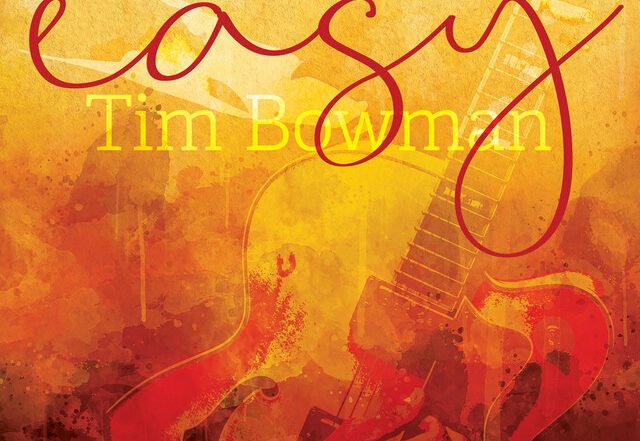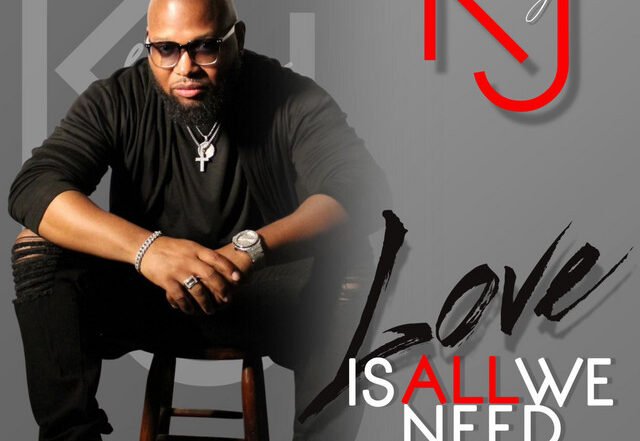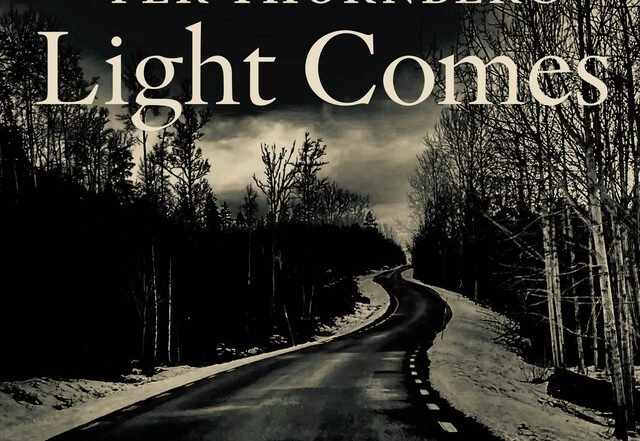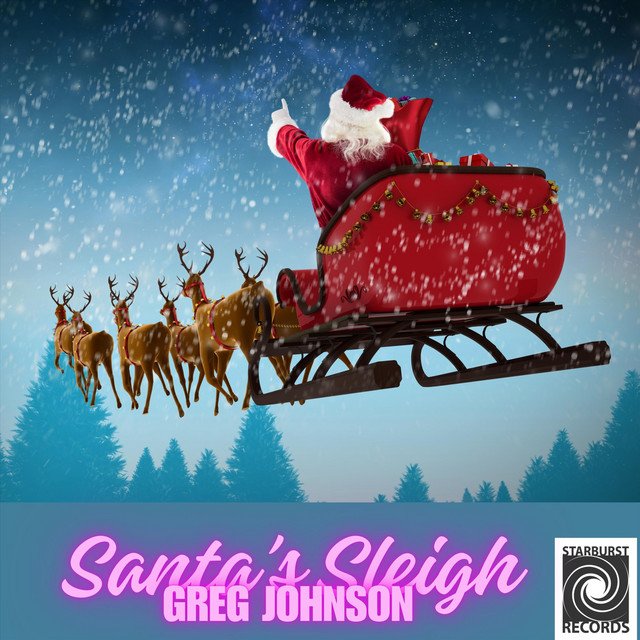Jazz Music ⁞ New Releases⁞ Artist Interviews⁞ Music News
Introduction of Jazz Music
Jazz is a genre of music that originated in the African-American communities of New Orleans, United States, in the late 19th and early 20th centuries. It is characterized by its use of improvisation, complex harmonic structures, and a wide range of musical influences, including blues, gospel, and European classical music. Jazz is known for its swing rhythm, which is created by the use of syncopated rhythms and a strong pulse. It is often played by small ensembles, such as a quintet or sextet, and is known for its ability to adapt to a wide range of musical contexts and styles. Jazz has had a significant influence on many other genres of music, and has been an important part of the cultural fabric of the United States and the rest of the world for more than a century.
Jazz by Nagamag Playlist on Spotify
Jazz Featured Releases
Tim Bowman – Easy
“Smooth vibe and easy listening sounds are perfectly capturing jazz vibes and lush atmosphere. Groovy but still mellow beats are driving this song so well. Beautiful lead guitar is expanding the mood of the song in a blissful way and all the harmonies in the background gives depth to that wonderful feeling.”
“Η ομαλή ατμόσφαιρα και οι εύκολοι ήχοι ακρόασης καταγράφουν τέλεια τζαζ ατμόσφαιρα και πλούσια ατμόσφαιρα. Groovy αλλά ακόμα μαλακά χτυπήματα οδηγούν αυτό το τραγούδι τόσο καλά. Η όμορφη κιθάρα μολύβδου επεκτείνει τη διάθεση του τραγουδιού με ευτυχισμένο τρόπο και όλες οι αρμονίες στο παρασκήνιο δίνουν βάθος σε αυτό το υπέροχο συναίσθημα.” *
“El ambiente suave y los sonidos de escucha fáciles capturan perfectamente las vibraciones de jazz y la exuberante atmósfera. Los ritmos maravillosos pero aún suaves están conduciendo esta canción tan bien. Hermosa guitarra principal está expandiendo el estado de ánimo de la canción de una manera maravillosa y todas las armonías en el fondo dan profundidad a esa maravillosa sensación.” *
-Nagamag.com
The song “Tim Bowman – Easy” is released by Nia Music Distribution, Llc.
Song Sources for “Tim Bowman – Easy”:
Spotify: open.spotify.com/track/2QMncvsysL74Zs8EHYWaCz
Youtube: www.youtube.com/watch?v=mtwuwyI-wi0
Apple Music: music.apple.com/us/album/easy/1680626168?i=1680626169
Deezer: www.deezer.com/track/2222711217
Find Tim Bowman on Socials:
Instagram: www.instagram.com/tim.bowman/
Kenny J Wilkins – Love Is All We Need
“Η μελωδία από την αρχή μας μεταφέρει σε μια κατάσταση ευεξίας. Χαρούμενες νότες και αρμονικές στολίζουν με τα πιο υπέροχα χρώματα την ατμόσφαιρα. Τα εξαίσια φωνητικά με την εντυπωσιακή καθαρότητα τους και τη δυναμική τους εκφράζουν επιτυχημένα τα συναισθήματα αγάπης και δικαιοσύνης. Ο ρυθμός μας κρατά σε ισορροπία και μας γεμίζει ευχαρίστηση.”
“The melody from the beginning takes us to a state of wellness. Happy notes and harmonics adorn the atmosphere with the most beautiful colors. The exquisite vocals with their impressive purity and their dynamics successfully express the feelings of love and justice. Our rhythm keeps us in balance and fills us with pleasure.” *
“La melodía desde el principio nos lleva a un estado de bienestar. Las notas y armónicos felices adornan la atmósfera con los colores más hermosos. Las voces exquisitas con su impresionante pureza y su dinámica expresan con éxito los sentimientos de amor y justicia. Nuestro ritmo nos mantiene en equilibrio y nos llena de placer.” *
-Nagamag.com
The song “Kenny J Wilkins – Love Is All We Need” is released by Kenny J. Wilkins
Song Sources for “Kenny J Wilkins – Love Is All We Need”:
Spotify: open.spotify.com/track/1THeqPkuCcispcYX9YWEDn
Per Thornberg – Light Comes
“Smooth groove and very soft atmosphere with amazing saxophone solo is something that will set you at ease after a long day. Song is perfect for relaxing moments or preparing yourself for a night out. Lush saxophone perfectly captures the jazzy mood of the song with amazing bass and joyful background harmonies. ”
“Η ομαλή αυλάκωση και η πολύ μαλακή ατμόσφαιρα με εκπληκτικό σόλο σαξόφωνο είναι κάτι που θα σας προκαλέσει άνετα μετά από μια κουραστική μέρα. Το τραγούδι είναι ιδανικό για χαλαρωτικές στιγμές ή προετοιμάζοντας τον εαυτό σας για μια νύχτα έξω. Το πλούσιο σαξόφωνο καταγράφει τέλεια την τζαζ διάθεση του τραγουδιού με εκπληκτικό μπάσο και χαρούμενες αρμονίες φόντου.” *
“Slät spår och mycket mjuk atmosfär med fantastisk saxofonsolo är något som kommer att göra dig lugn efter en lång dag. Sången är perfekt för avkopplande stunder eller förbereda dig själv för en utekväll. Lush Saxophone fångar perfekt den jazziga stämningen i låten med fantastisk bas och glada bakgrund harmonier.” *
-Nagamag.com
The song “Per Thornberg – Light Comes” is released by ELITIST • A Division of Strawtown
Song Sources for “Per Thornberg – Light Comes”:
Spotify: open.spotify.com/track/7BpCywuaRHGQ8U3vU05CKh
Find Per Thornberg on Socials:
Instagram: www.instagram.com/per_thornberg/
Latest Jazz discoveries
Do You Think That Santa Celebrates Halloween? – Kyle Cox
Η γιορτινή μελωδία ζεσταίνει τις καρδίες μας και το κεφάτο σαξόφωνο μας γεμίζει χαρά. Τα υπέροχα και καθαρά φωνητικά παιχνιδί... >>> Read full review & listen to the song on Nagamag #jazz #holidaymusic #kylecox #nagamag #musicmagazine #musicreview #review
All I Want For Christmas Is One More Beer (Fake X-mas Song) – Mighty Joe Belson
Η γλυκιά μελωδία με το ταπεραμέντο και την ευκίνητη ροή της δημιουργεί όμορφες εικόνες στο μυαλό μας. Ένα γιορτινό χορευτικό ... >>> Read full review & listen to the song on Nagamag #jazz #holidaymusic #mightyjoebelson #unitedstates #nagamag #musicmagazine #musicreview #review
Baked Potato – Liz Nash
Ένα όμορφο ρομαντικό ταξίδι μέσα από την γλυκιά αυτή μελωδία που την απολαμβάνουμε χωρίς αμφιβολία. Η κιθάρα στο 2:00 κάνει τ... >>> Read full review & listen to the song on Nagamag #indiefolk #jazz #liznash #unitedstates #nagamag #musicmagazine #musicreview #review
Santa’s Sleigh – Greg Johnson
Μια όμορφη γιορτή στήνεται και η χαρούμενη μελωδία φοράει τα καλά της διώχνοντας μακριά τις έγνοιες και τα προβλήματα, ενώ το... >>> Read full review & listen to the song on Nagamag #jazz #adultcontemporary #gregjohnson #unitedstates #nagamag #musicmagazine #musicreview #review
What a Wonderful World – Bastian Weinig
Really loveable, amazing jazz rendition of an old time classic. Song feels much deeper and strikes a chord instantly. Its pos... >>> Read full review & listen to the song on Nagamag #jazz #bastianweinig #germany #nagamag #musicmagazine #musicreview #review
Turning Leaves – Nicole Gi
Smooth mood and easy listening sounds that are layered with her blissful lead vocal. Mixture of styles are done so well withi... >>> Read full review & listen to the song on Nagamag #neosoul #retrosoul #nicolegi #canada #nagamag #musicmagazine #musicreview #review
La Sudestada – Daniel Diaz
Джазовая композиция изобилует атмосферой, насыщенной мелодикой и блуждающим, словно луна в ночи ритмом. -Daniel Diaz- умело и... >>> Read full review & listen to the song on Nagamag #jazz #danieldiaz #argentina #nagamag #musicmagazine #musicreview #review
Plans Tonight (feat. Leonora) – Radius x Leonora
Απο την πρώτη στιγμή το κομμάτι δείχνει τη δυναμική του. Ωραία μελωδία που σε ξεσηκώνει χωρίς δισταγμό και φωνητικά απόλυτα τ... >>> Read full review & listen to the song on Nagamag #funk #retrosoul #radiusxleonora #radiusxleonora #germany #nagamag #musicmagazine #musicreview #review
Vicentina – Lophae
Η απαλή και ταξιδιάρικη μελωδία χαλαρώνει σώμα και ψυχή. Το διακριτικό και εκλεπτυσμένο ύφος της προσφέρει την διασκέδαση που... >>> Read full review & listen to the song on Nagamag #jazz #worldmusiclatin #hispanic #lophae #unitedkingdom #nagamag #musicmagazine #musicreview #review
Some Jazz subgenres
There are many subgenres of jazz, and the boundaries between them can be somewhat fluid. Here are a few of the most common subgenres of jazz:
Dixieland jazz: Also known as “traditional” or “New Orleans” jazz, this style is characterized by its use of collective improvisation and a strong rhythm section, featuring instruments such as the trumpet, trombone, and clarinet.
Swing: This style emerged in the 1930s and 1940s and is characterized by its use of a swinging rhythm and big band instrumentation. It was popularized by bands led by musicians such as Duke Ellington and Benny Goodman.
Bebop: This style emerged in the 1940s and is characterized by its fast tempo, complex chord progressions, and extensive use of improvisation. It was popularized by musicians such as Charlie Parker and Dizzy Gillespie.
Cool jazz: This style emerged in the 1950s and is characterized by its use of complex harmonies and a laid-back, relaxed approach to rhythm. It was popularized by musicians such as Miles Davis and Dave Brubeck.
Fusion: This style emerged in the 1970s and is characterized by its incorporation of elements from other genres of music, such as rock, funk, and world music. It was popularized by musicians such as John McLaughlin and Chick Corea.
Smooth jazz: This style emerged in the 1980s and is characterized by its use of electronic instrumentation and a focus on melody and groove. It was popularized by musicians such as George Benson and Grover Washington Jr.
Hard bop: This style emerged in the 1950s and is characterized by its use of blues and gospel influences and its incorporation of elements from bebop and swing. It was popularized by musicians such as Horace Silver and Art Blakey.
Free jazz: This style emerged in the 1960s and is characterized by its use of extended improvisation and a lack of strict chord progressions or other formal structures. It was popularized by musicians such as Ornette Coleman and John Coltrane.
Latin jazz: This style is characterized by its incorporation of Latin American rhythms and melodies, as well as its use of percussion instruments such as congas, timbales, and bongos. It was popularized by musicians such as Tito Puente and Cal Tjader.
Acid jazz: This style emerged in the 1980s and is characterized by its incorporation of elements from funk, soul, and hip hop, as well as its use of electronic instrumentation. It was popularized by musicians such as Brand New Heavies and Jamiroquai.
Jazz-rock: This style emerged in the 1970s and is characterized by its incorporation of elements from rock music and its use of electric instruments. It was popularized by musicians such as Mahavishnu Orchestra and Weather Report.
Jazz-funk: This style is characterized by its incorporation of elements from funk music and its use of electric instruments and groove-based rhythms. It was popularized by musicians such as James Brown and George Clinton.
As with any genre of music, these subgenres are just a few of the many that exist within the broader category of jazz. There are many other styles and variations within jazz.
The most used instruments in Jazz Music
There are many different instruments that are commonly used in jazz music, and the specific instruments used can vary depending on the style and context of the music. Here are a few of the most common instruments used in jazz:
Piano: The piano is a common instrument in jazz music and is often used to provide the harmonic foundation for the music. Jazz pianists may use a range of techniques, including comping (providing chordal accompaniment), soloing (performing a melodic solo), and improvising (creating music spontaneously).
Drums: The drums are an important part of the rhythm section in jazz music and are often used to create a swinging or groove-based feel. Jazz drummers may use a range of techniques, including various stick and cymbal patterns, to create complex rhythms and interactive interactions with other musicians.
Bass: The bass is another important part of the rhythm section in jazz music and is often used to provide the foundation for the music. Jazz bassists may use a range of techniques, including walking bass lines (a repeating pattern of notes played over the chord progression of a song) and soloing, to create a strong rhythmic and melodic foundation for the music.
Guitar: The guitar is often used in jazz music and can play a variety of roles, from providing chordal accompaniment to soloing. Jazz guitarists may use a range of techniques, including chord voicings (arrangements of notes in a chord), arpeggios (broken chords played one note at a time), and improvisation, to create complex and interesting musical textures.
Saxophone: The saxophone is a common instrument in jazz music and is often used to play melodies and improvise solos. Jazz saxophonists may use a range of techniques, including alternate fingerings, multiphonics (playing more than one pitch at a time), and circular breathing (a technique for continuous blowing), to create a wide range of sounds and textures.
Vocals: Vocals are often used in jazz music, and many jazz singers have made significant contributions to the genre. Jazz vocals can take many forms, ranging from scat singing (improvised vocalizations using nonsense syllables) to more traditional vocal styles such as singing with lyrics. Some famous jazz singers include Billie Holiday, Ella Fitzgerald, and Louis Armstrong, all of whom are known for their unique vocal styles and ability to improvise.
In addition to traditional vocals, many jazz musicians also use electronic effects and processing to manipulate their voices, creating a wide range of sounds and textures. Some jazz musicians, such as Bobby McFerrin and Gregory Porter, have made significant contributions to the genre using only their voices, without any accompanying instruments.
In jazz music, lyrics are often used in the same way as in other genres of music, to express emotions, tell a story, or convey a message. However, jazz lyrics may also be used to create a structure for improvisation or to provide a basis for scat singing, which is a form of vocal improvisation in which the singer uses nonsense syllables instead of actual words.
Jazz lyrics may also be more abstract and poetic than lyrics in other genres of music, and may use figurative language or symbolism to convey meaning. Jazz lyrics often reflect the social and cultural contexts in which the music was created, and may address themes such as love, loss, hope, and social or political issues.
Overall, vocals and the meaning of lyrics in jazz music depends on the context in which they are used and the intentions of the songwriter. They can be used to express emotions, tell a story, convey a message, or provide a structure for the music to follow.












